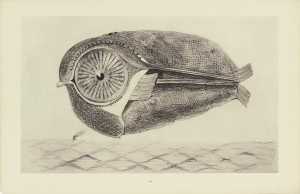Specifications
| Title | The Lime Tree is Docile |
|---|---|
| Material and technique | Photogravure |
| Object type |
Print
> Two-dimensional object
> Art object
|
| Location | This object is in storage |
| Dimensions |
Height 264 mm Width 430 mm |
|---|---|
| Artists |
Artist:
Max Ernst
Publisher: Éditions Jeanne Bucher |
| Accession number | MB 1995/3 17 (PK) |
| Credits | Purchased 1995 |
| Department | Drawings & Prints |
| Acquisition date | 1995 |
| Creation date | in 1926 |
| External exhibitions |
A Surreal Shock – Masterpieces from Museum Boijmans Van Beuningen (2021) Surrealist Art - Masterpieces from Museum Boijmans Van Beuningen (2021) Only the Marvelous is Beautiful (2022) |
| Material | |
| Object | |
| Technique |
Photoaquatint
> Mechanical
> Intaglio printing techniques
> Printing technique
> Technique
> Material and technique
|
| Geographical origin | Germany > Western Europe > Europe |
Do you have corrections or additional information about this work? Please, send us a message























